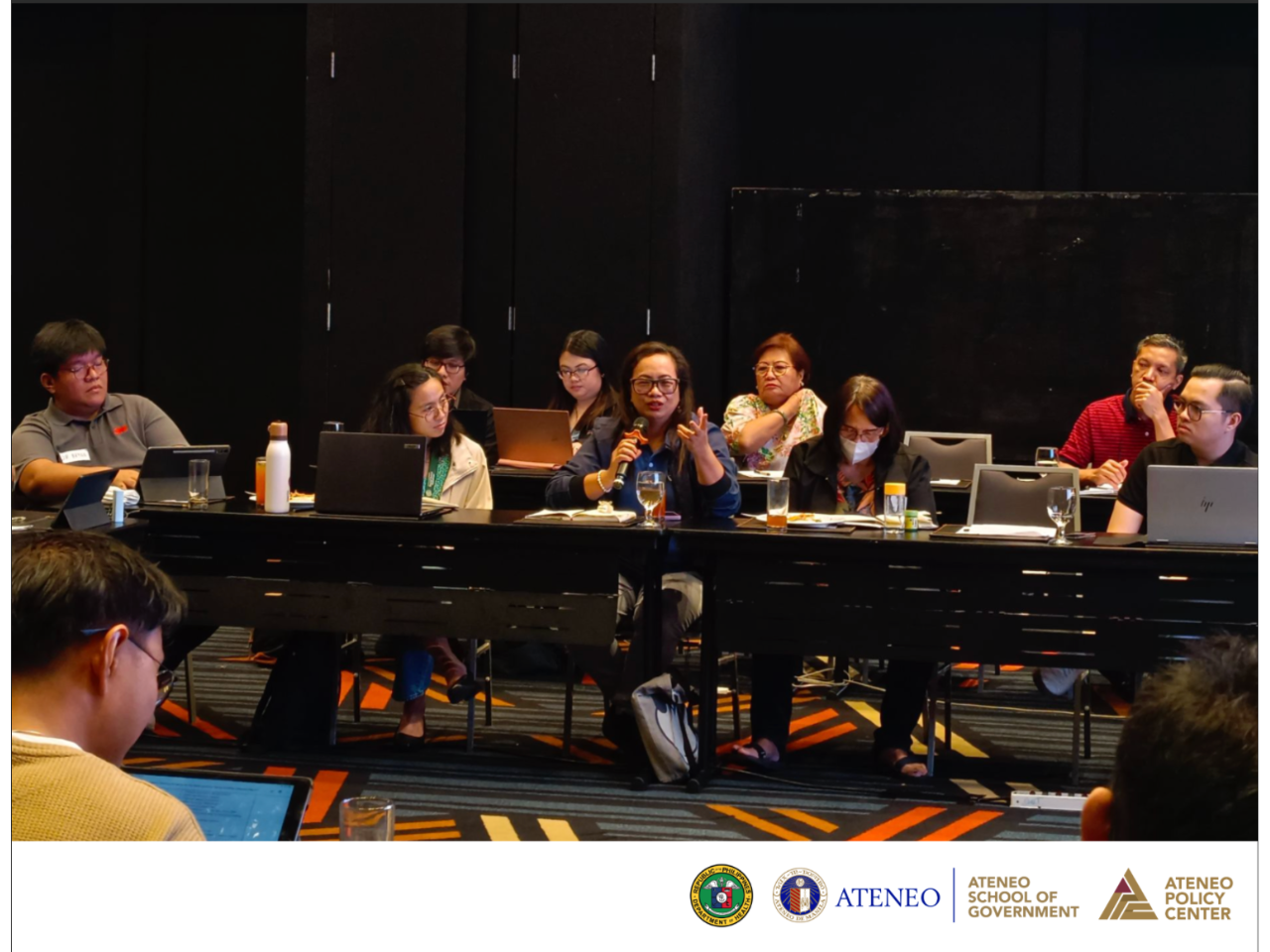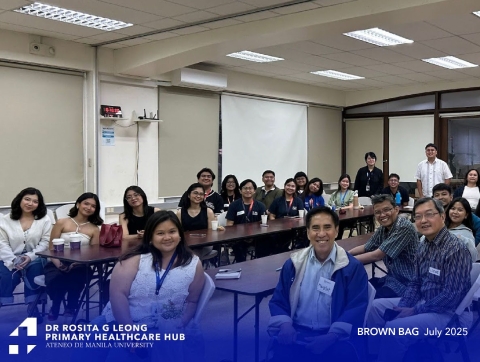Ateneo School of Government holds multistakeholder framework planning workshop for National Tobacco Cessation Infrastructure Plan, 2025-2030
16 May 2025
On 8 to 9 May 2025, the Ateneo School of Government (ASOG), through the Ateneo Policy Center (APC), conducted a Multistakeholder Framework Planning Workshop for the National Tobacco Cessation Infrastructure Plan, 2025-2030 at B Hotel, Quezon City. The two-day multistakeholder workshop served as the second session of the Framework Planning Workshop held on April 23, 2025. The workshop focused on expanding support for the creation and development of a comprehensive framework for the National Tobacco Cessation Infrastructure Plan. In attendance were partners from various bureaus of the Department of Health (DOH), Vital Strategies, national government agencies, local government units (LGUs), civil society organizations, non-government organizations, hospitals, centers for health and development, and other stakeholders from the tobacco control community.
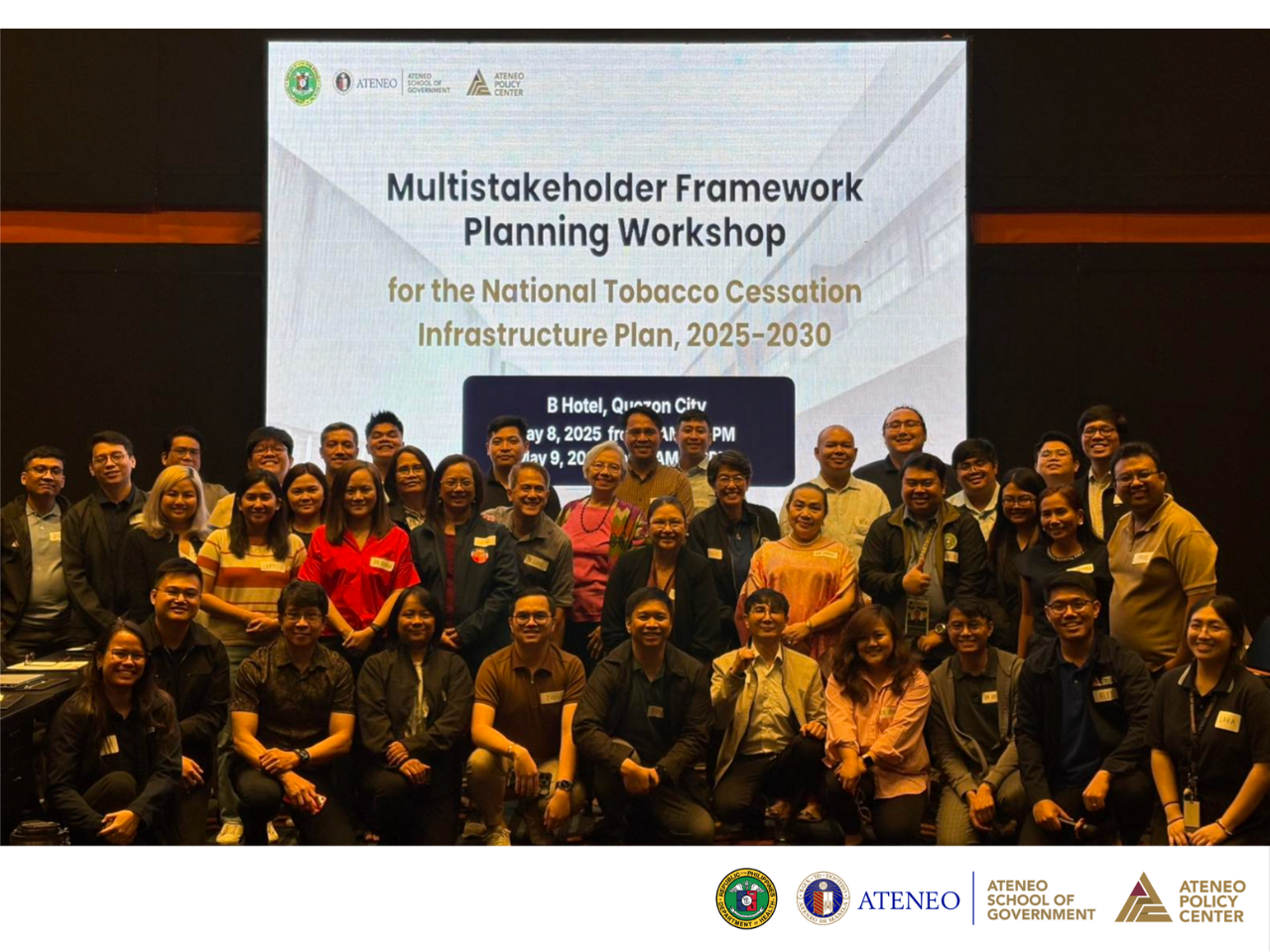
Day One: Program Overview and Objectives, Status and Priority Issues of Tobacco Cessation in the Philippines, and Target Key Result Areas for the National Tobacco Cessation Plan
Mr Alen Santiago, Program Manager of the Tobacco Control and Governance (TCG) program of ASOG, and Dr Anatoly “Olie” de los Santos from the Disease Prevention and Control Bureau (DPCB) of the DOH, opened the program by sharing the story of how the project began, emphasizing the vital role of collaborative efforts and expressing appreciation for the commitment of the attendees in advancing tobacco cessation. Ms Marcia “Chuki” Feria-Miranda, Planning Consultant for the project and the workshop facilitator, provided an overview of the workshop objectives and invited participants to express their motivations for contributing to the program, in relation to their current roles within their respective organizations.
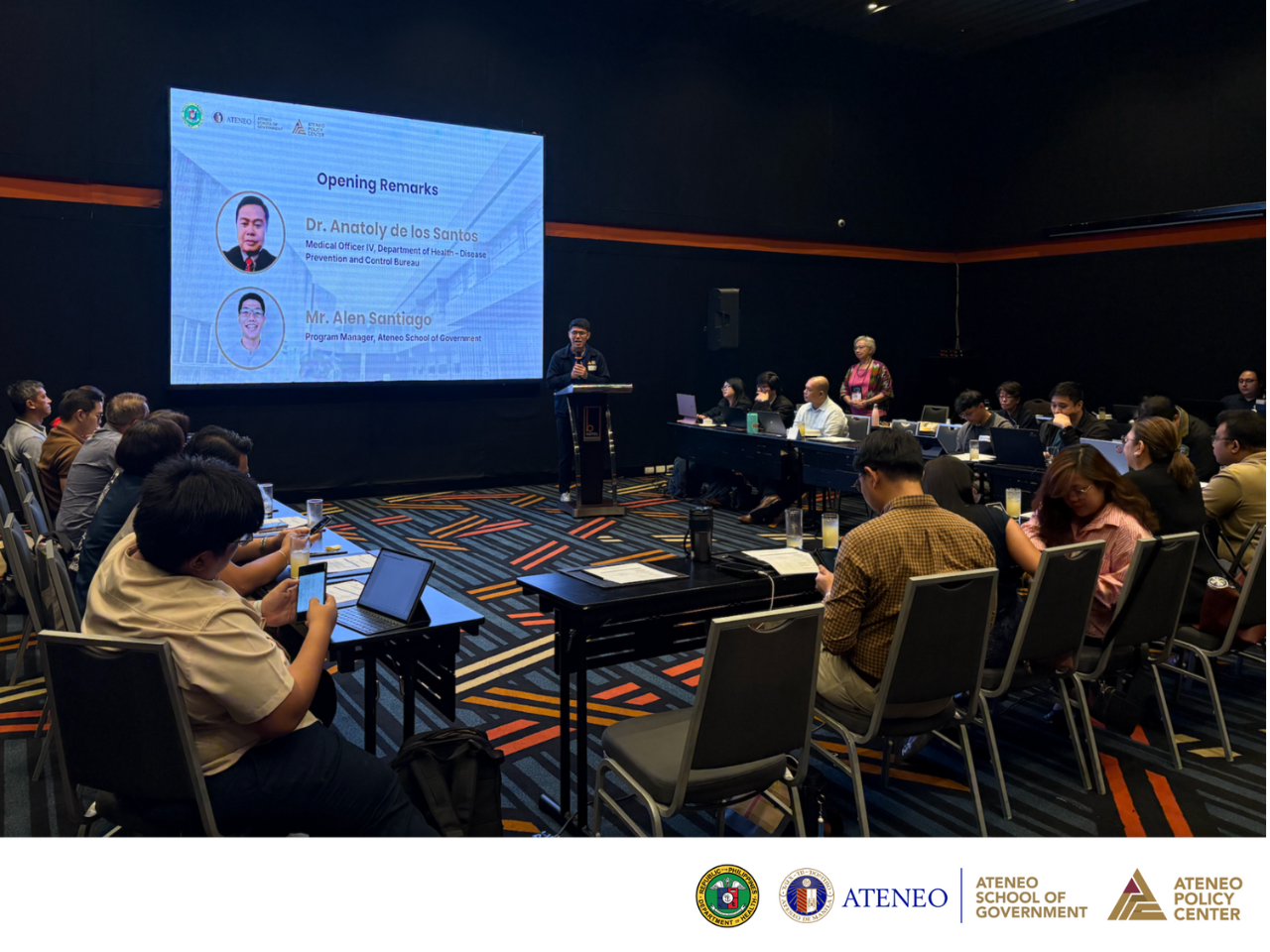
Multiple representatives from various organizations supporting tobacco control were invited to present on the status of tobacco cessation at a national level. In the morning session, Dr Jessica Catalan-Legarda, Head of the Smoking Cessation Program of the Lung Center of the Philippines (LCP), shared her experience implementing the National Quitline. Dr Donnabel Panes, Medical Officer IV from the Baguio City Health Services Office, shared current ongoing tobacco cessation initiatives in Baguio City, along with strategies that other LGUs could adopt to enhance their own tobacco cessation efforts. Dr Paul Filomeno of the Philippine Addiction Specialists Society followed up by delving into the issue of vaping as a rising concern among the youth. Mr Rodley Carza, Program Review and Assessment Consultant for the project, capped off the first half of the day with a briefer of historical cessation efforts in the Philippines.
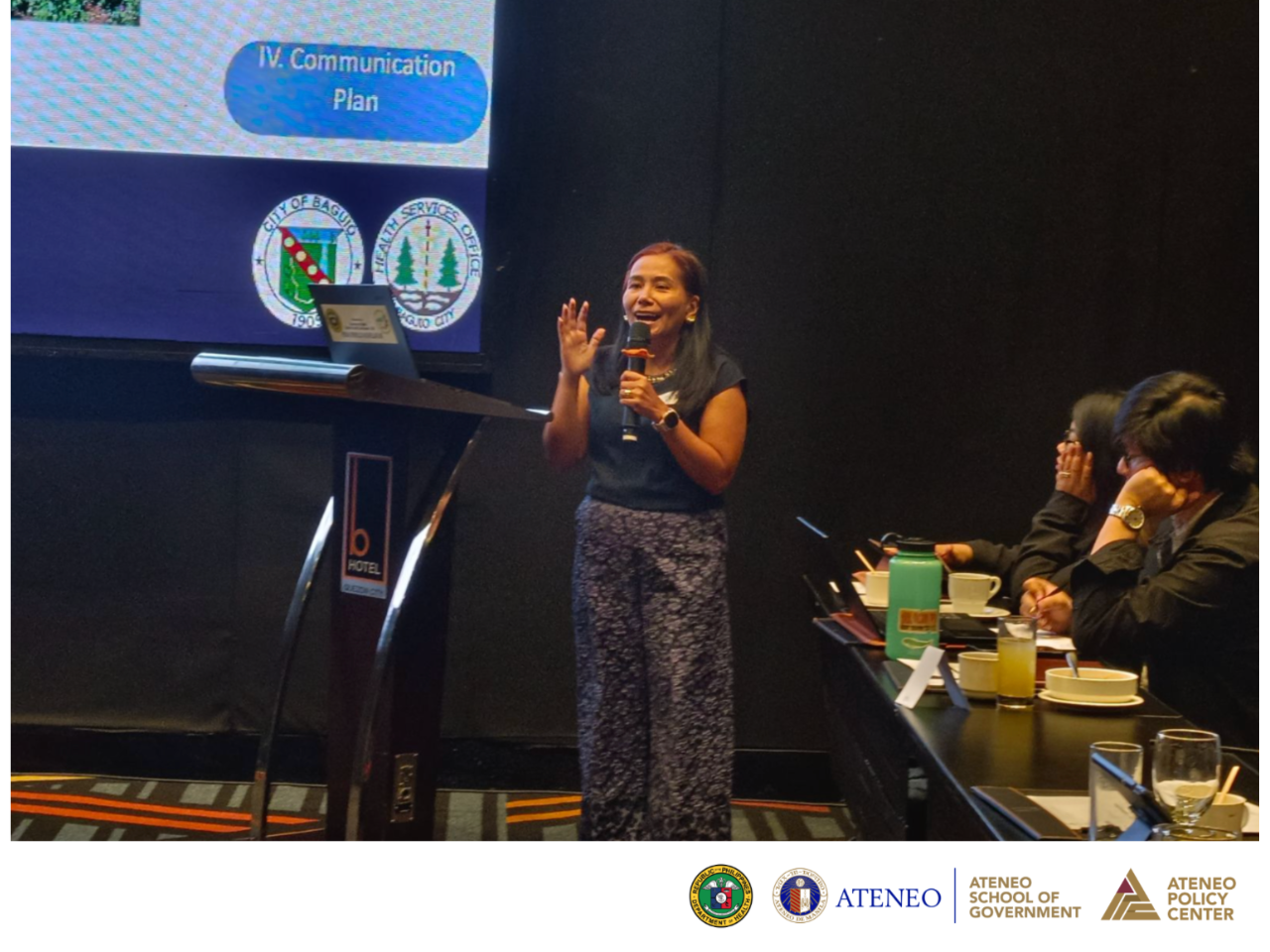
Mr Bryan Medina, a Health Program Officer II from the DOH-DPCB, started off the afternoon session by providing an overview on the tobacco cessation efforts of DOH-DPCB. Mr Santiago of ASOG capped off the plenary sessions by presenting on recent research conducted by ASOG exploring various topics in tobacco cessation. The session followed with an overview into the National Tobacco Cessation Infrastructure Plan and its objectives.
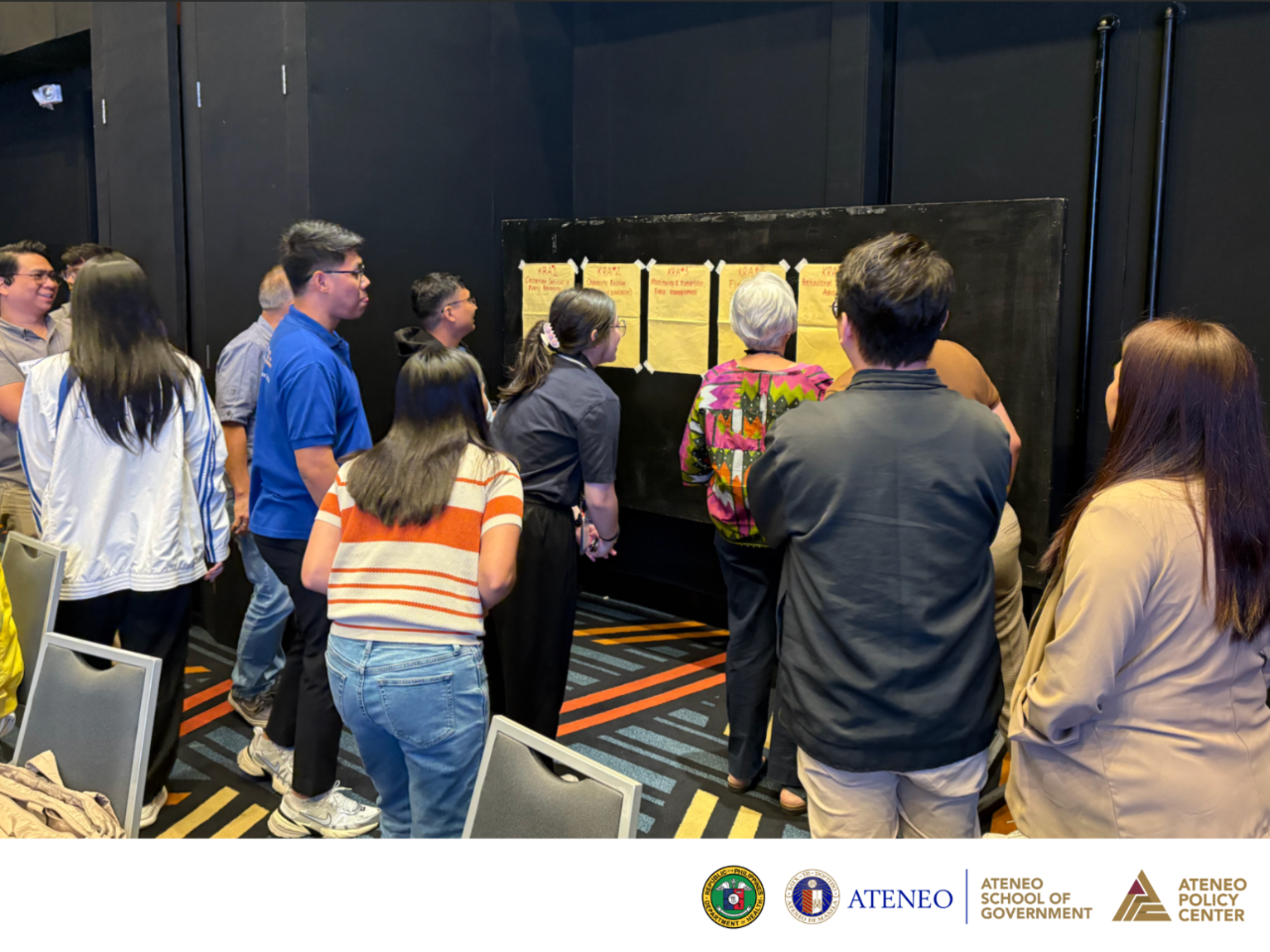
The participants were divided into five groups to represent the five different Key Result Areas (KRAs) of focus for the Tobacco Cessation Infrastructure Plan 2025-2030. During the breakout session, participants worked on developing the framework and approach for achieving each KRA by identifying strategies, data collection mechanisms, and key stakeholders at both the national and local levels.
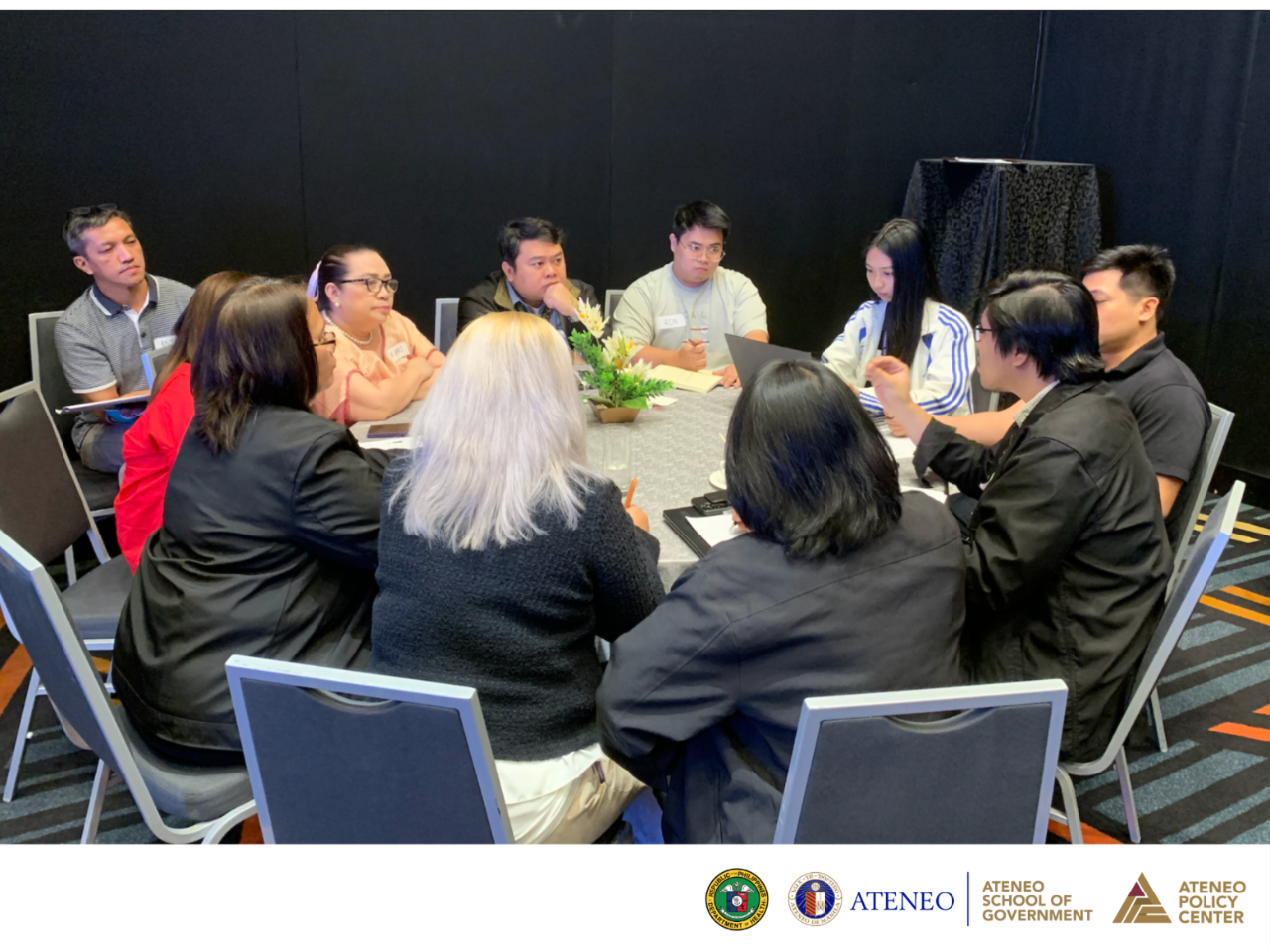
The first day of the workshop concluded with a plenary session on presentations from each KRA group, followed by an open forum where participants exchanged insights, raised questions, and provided feedback on the ideas that were presented.
Day Two: Sustaining a Multisectoral Network for Tobacco Control and Preparing for an Evidence-Based Tobacco Cessation Plan
The second day of the workshop began with a review of the day one discussions and a reintroduction of the tentative goals and objectives for the National Tobacco Cessation Infrastructure Plan.
Dr Madeleine Valera, Senior Technical Advisor of Vital Strategies, succeed the introductory session by presenting best tobacco cessation practices from other countries. This situational scan provided attendees with a more informed understanding of possible policy levers for tobacco cessation that may also prove effective in the Philippine context.

Mr Rodley Carza introduced the Self-administered Tool for Evaluating Program Success in Tobacco Cessation (STEPS-TC), an evaluation tool designed to assess the success and comprehensiveness of tobacco cessation programs at national and subnational levels.
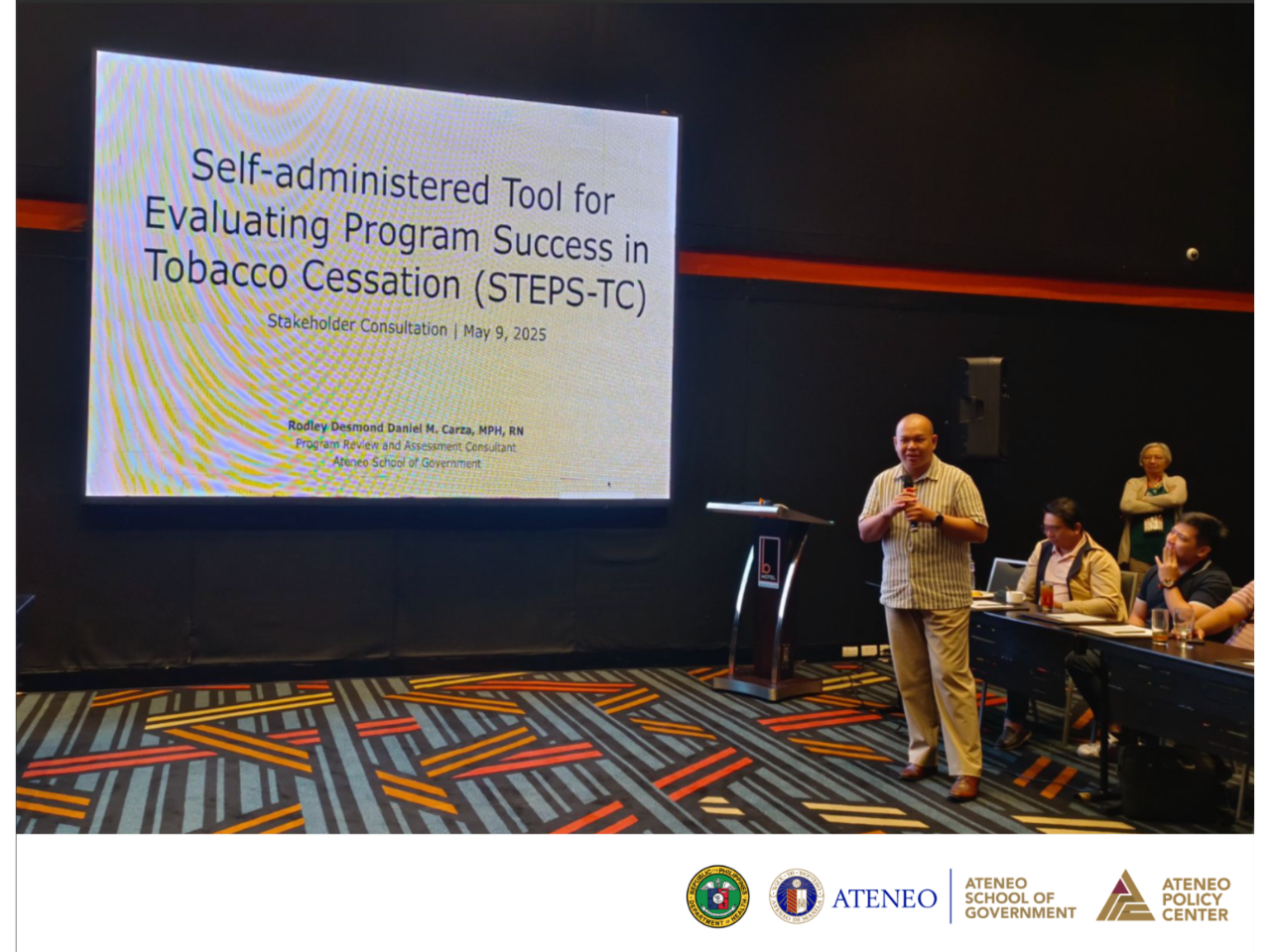
Mr Carza opened the floor for consultation with the attendees for their feedback on each section of the tool. The goal was to reaffirm whether the checklist items in the tool are aligned with the WHO FCTC Article 14 implementing guidelines and if the survey tool reflects the core components of an effective tobacco cessation program.
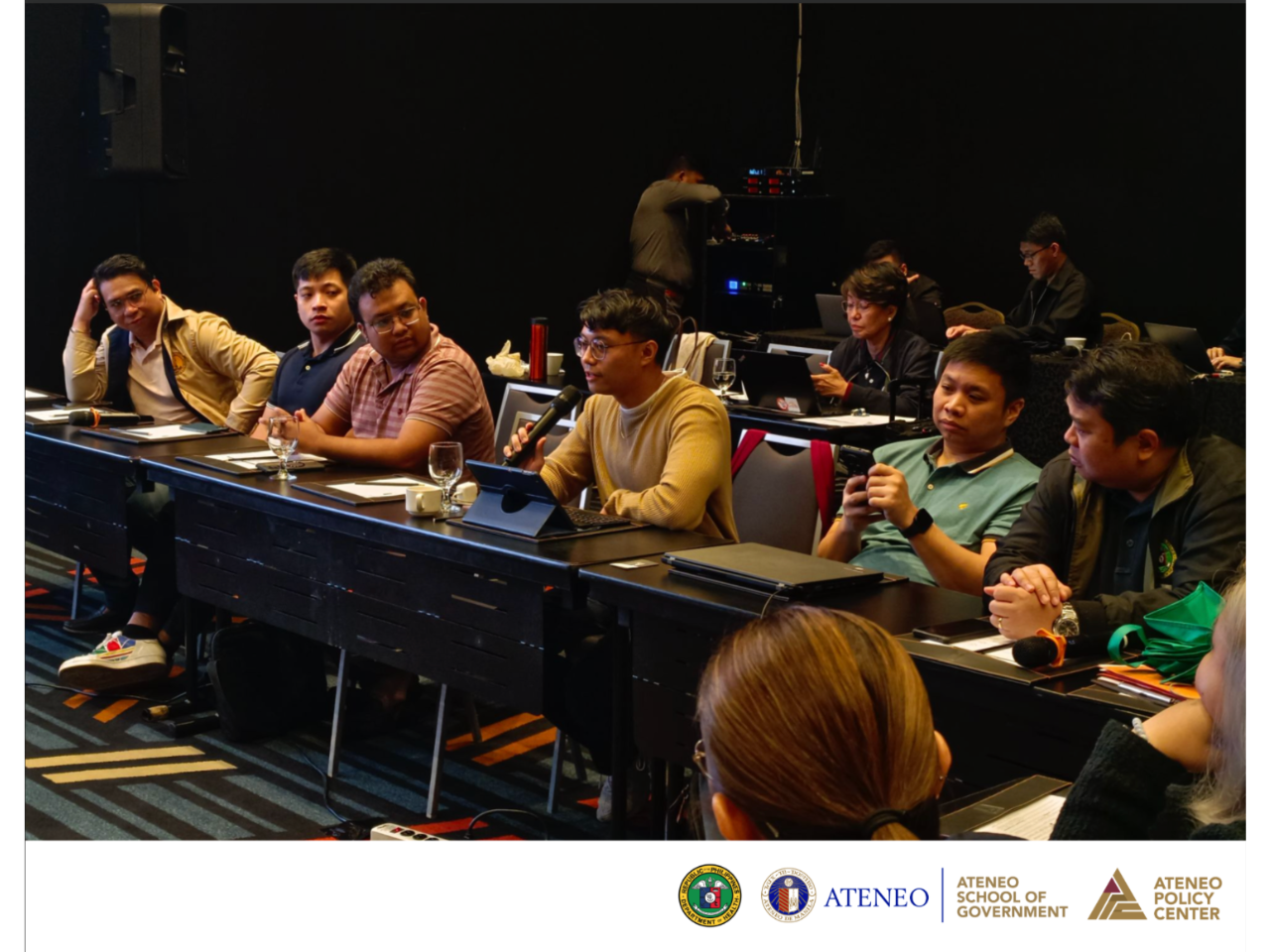
Mr Santiago concluded the session by discussing next steps after the workshop. He presented a concrete project timeline for the succeeding field work activities, stakeholder engagements, and expert group meetings.
Looking Ahead
The Multistakeholder Framework Planning Workshop served as an important milestone for the development of the National Tobacco Cessation Infrastructure Plan 2025-2030, having convened various key stakeholders from the Department of Health, national government agencies, local government units, civil society organizations, non-government organizations, hospitals, and centers for health and development. The activities conducted over this two-day workshop among the attendees from various sectors and expert domains exemplified the importance of a multisectoral approach to developing strong cessation programs in the country.
Moving forward, all participants and stakeholders from the workshop will convene as the Cessation Technical Working Group, commiting to plans and strategiesto organize more opportunities for collaboration in creating the National Tobacco Cessation Infrastructure Plan 2025-2030.
